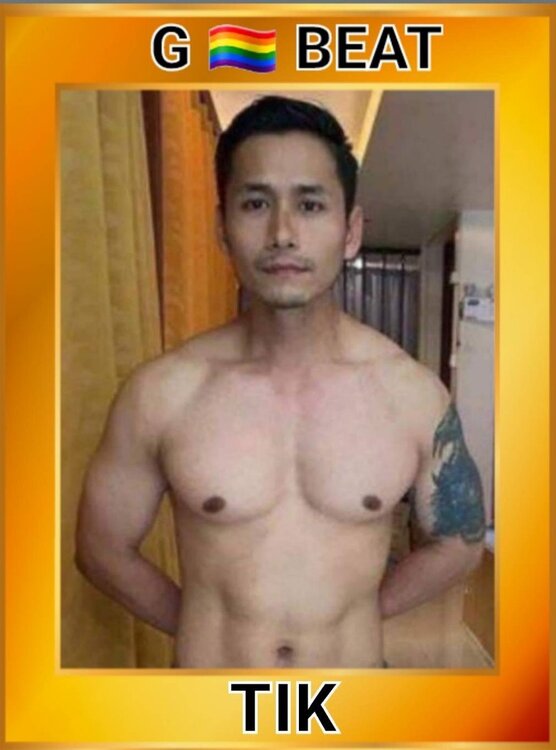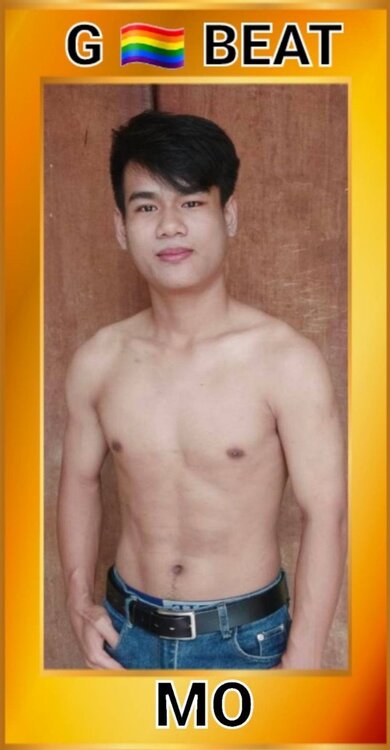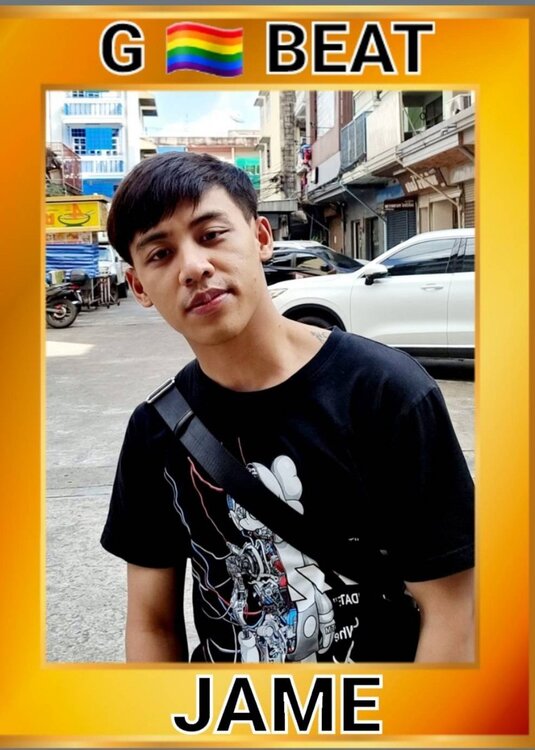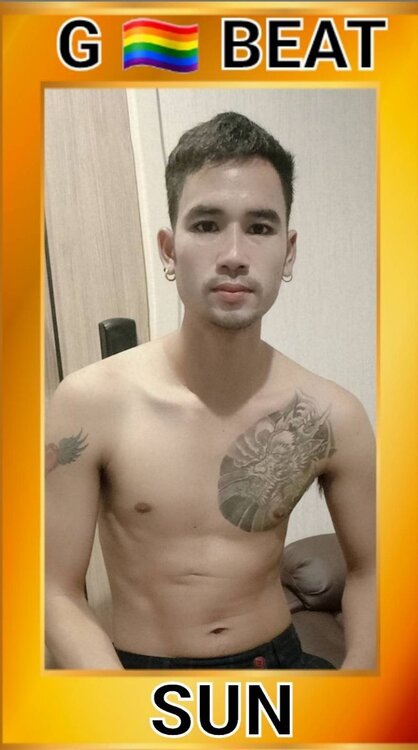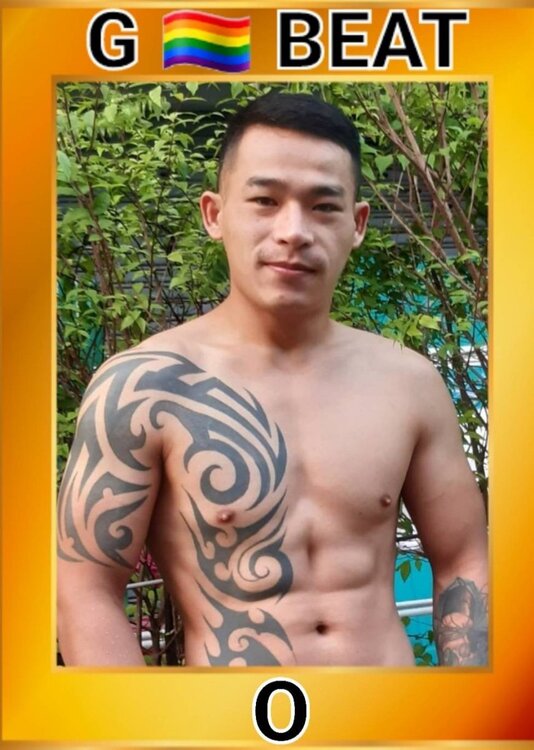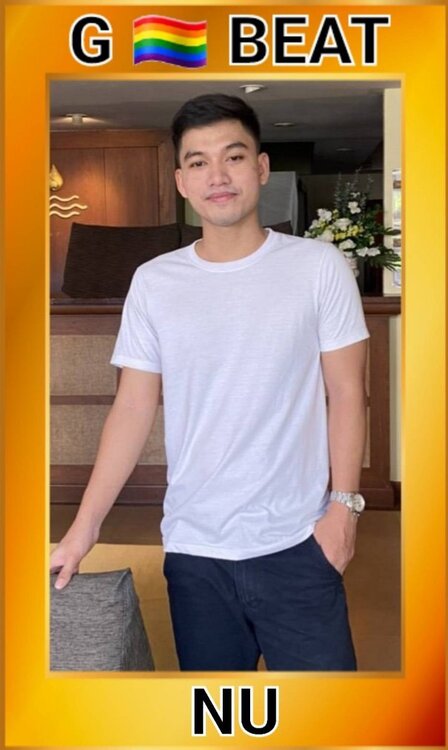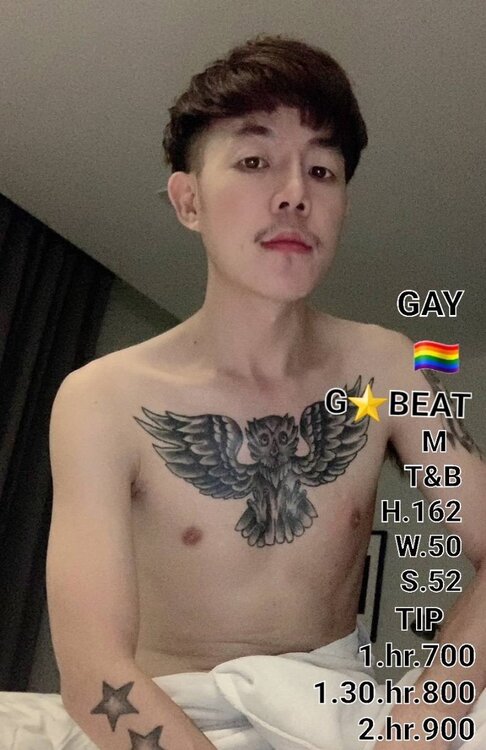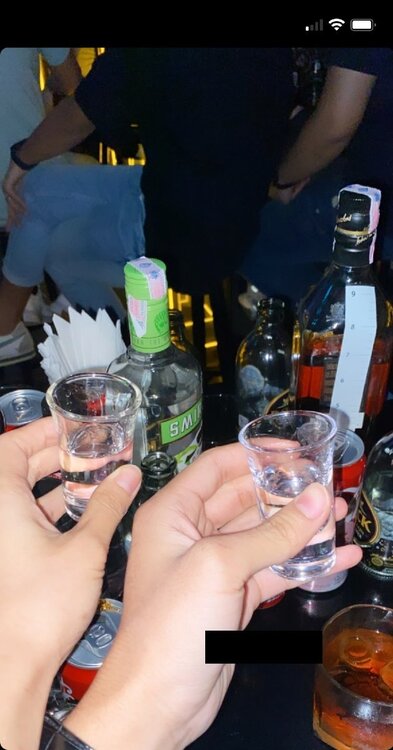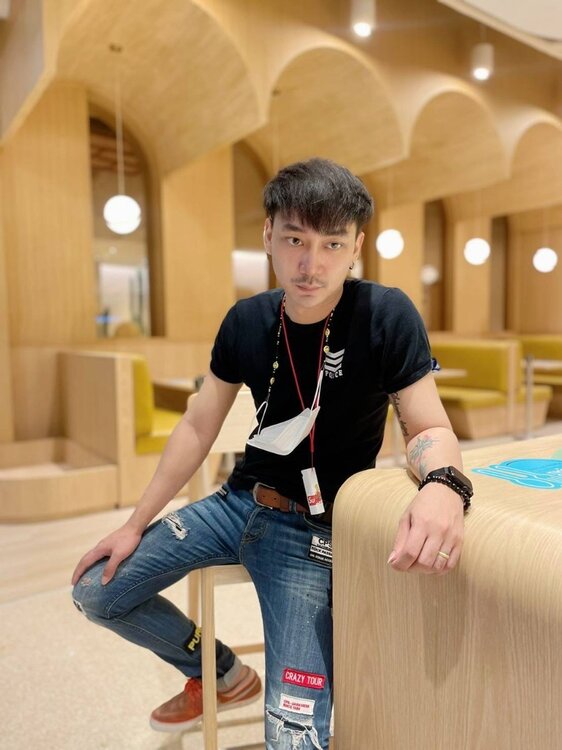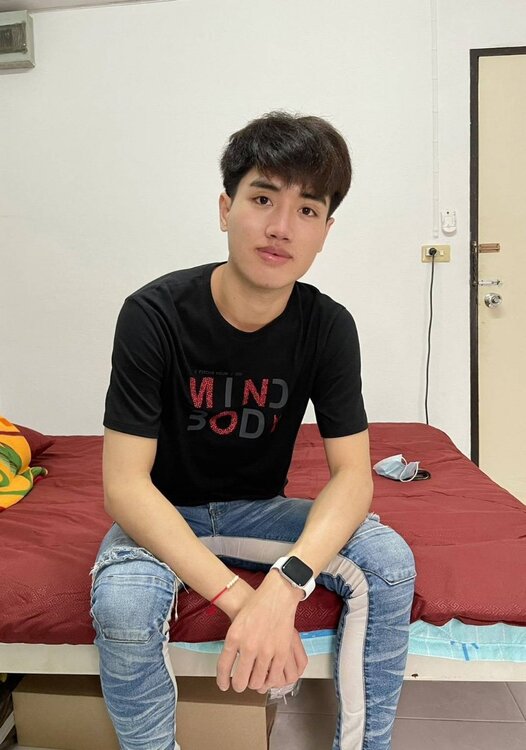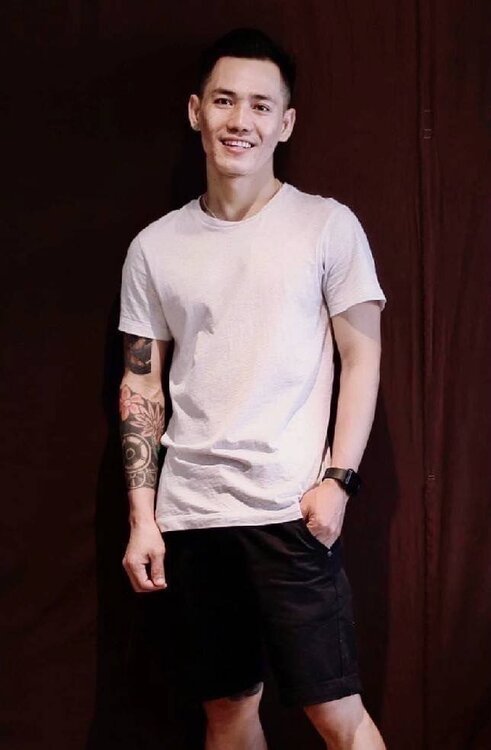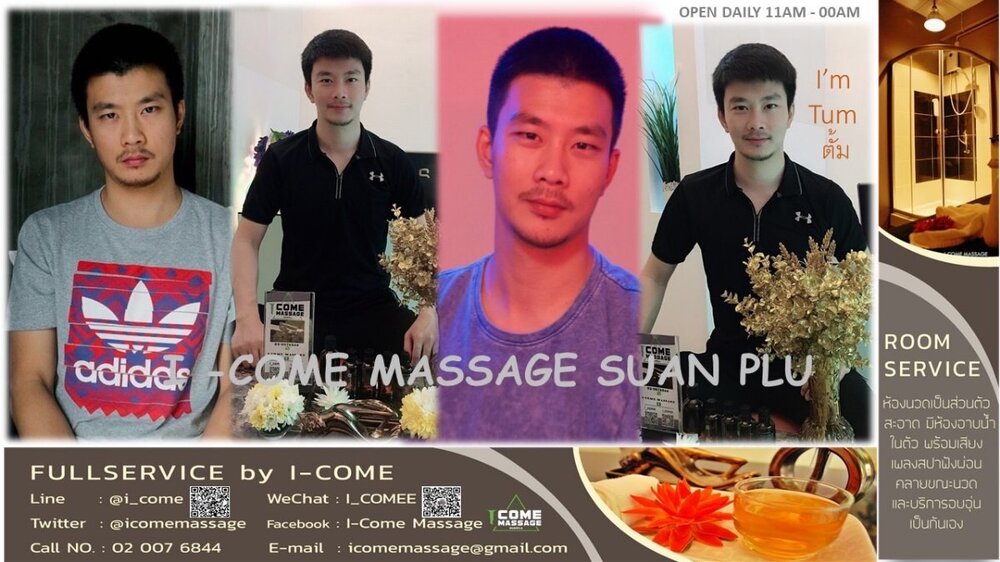Leaderboard
Popular Content
Showing content with the highest reputation on 11/28/2021 in all areas
-
Bogota’s all-male strip club for men (men-only) is located one floor above the Saint Moritz sauna. Enter from the the street (door on left-hand side of building) and take the stairs all the way up to the 3rd floor. Entry door the Gigolo Erotic House is to your right. You will be welcomed by the doorman who will orient you to the place. There is You can hang back at the rear wall or ask to be seated. Many of the best tables beside the stage will be reserved. If you are a party of three or more, advanced reservations are highly recommended. Drinks are reasonably priced and the waiters will ensure that your drink does not run out. A gratuity at the end of the evening will be appreciated. The shows go from dancing to erotic to fully nude with erection to thumping pop and reggaeton. Friday nights usually feature live sex shows (with penetration). The club is compact and the boys make the rounds, many offering up a hard dick for you to inspect for a tip 😊 The majority of the performers are available for private dances, which take place behind two curtained areas. Negotiate the price and what you want in advance so there are no surprises. Most dancers want 30K COP per song but you can negotiate. Pretty much anything goes, depending on the dancer. Many of the boys will offer additional services offsite. If they offer you a WhatsApp phone number they are letting you know that they are for hire. Dancers (current as of December 2021) https://gigolosbogota.com/gogos-bogota/ Currently the Gigolo Erotic House is only open on Friday and Saturday from 7:30pm – 1:00am. Occasionally open Sundays depending on local holidays. Getting there The club is situated just west of Carrera 13 on Calle 65 (north side) at Cle 65 #13-30. There is a small neon sign for the club in a third floor window, but you are looking for the Saint Moritz sign above the door. The entry door is beside the Iludeco lighting store. https://www.google.com/maps/place/Sauna+Saint+Moritz/@4.6519928,-74.063493,20.31z/data=!4m5!3m4!1s0x8e3f9a45c2d88c3d:0xfaec468333e22129!8m2!3d4.6521358!4d-74.0636136 Social Media Twitter https://twitter.com/gigolohousebog @gigolohousebogota Facebook https://www.facebook.com/gigolohousebogota/ Instagram https://www.facebook.com/gigolohousebogota/ @gigolohousebogota Website https://gigolosbogota.com/gogos-bogota/ Phone +57 318 659-6233.3 points
-
how you take it? raw or well done ? Photo may be of poor quality but certainly guys there are not. From what you say and show it looks I may start liking soi 4, who would think? World is really changing, LOL3 points
-
Moved
splinter1949 and one other reacted to reader for a topic
Interesting piece of airline history. And this is one of those forums where more than a few members are old enough to recall--or even flown--Canadian Pacific. 🙂 In 1968, Canadian Pacific Air Lines was rebranded as CP Air. The Canadian Pacific Railway Company (renamed Canadian Pacific Limited in 1971) had decided to align the airline's name and "Multimark" design to that of its other subsidiaries, including CP Hotels, CP Ships, and CP Transport (CP Rail was spun off from the parent company later). The development of the great circle or polar route to the Far East from CP Air's Vancouver base would become one of the cornerstones of the airline. Having been renamed CP Air in 1968 with a new orange livery, the airline in 1986 reverted to its original name, Canadian Pacific Air Lines, with a new navy blue colour scheme and logo. This occurred shortly after the airline had taken over operations of Eastern Provincial Airways. This new incarnation, however, was short-lived. Less than a year later, in 1987, Canadian Pacific Air Lines was sold, along with Quebec's Nordair, to Calgary-based Pacific Western Airlines (PWA) for $300 million. PWA assumed the airline's debt of $600 million. In April 1987, PWA announced that the new name of the merged airline would be Canadian Airlines International. In 2000, Canadian Airlines was taken over by and merged into Air Canada. Bristol Britannia 314 "Empress of Rome" at Manchester Airport in 1965 Boeing 747, Boeing 737 and Boeing 727 in "Beautiful Orange" livery at Toronto International Airport in 1975 https://en.wikipedia.org/wiki/Canadian_Pacific_Air_Lines2 points -
Oh THAT TM6 form! All OK now. Maybe this will be useful to others, or maybe I’m just my usual nervous dizzy self the day before traveling. See you there! “TM 6 immigration form is a form required to be filled by foreign nationals entering Thailand to be submitted to the Thai immigration checkpoint at the airport you arrived at in Thailand. The TM 6 form can only be obtained once you are inside the plane during all international flights to Thailand. It will be handed over by the airline crew or staff for you to fill it. If you have not received the TM 6 form while on the plane, you can obtain this at the table located before the Thai immigration checkpoint at the airport.”2 points
-
Pete Buttigieg Tin Man?
stevenkesslar reacted to Lonnie for a topic
Pete Buttigieg Comes Across Like A Tin Man The new Pete Buttigieg documentary reveals a gifted politician struggling with how much to reveal of himself. Two and a half years after his run for president, Pete Buttigieg has managed to hold America’s attention and fascination. | Courtesy of Amazon Studios By RUBY CRAMER 11/08/2021 12:35 PM EST Ruby Cramer is a senior staff writer for Politico Magazine. The first voice you hear, somewhere off-camera, belongs to Jesse Moss, the filmmaker. “Anything you want to make sure that I ask him?” By this point, Moss has spent 11 months with his subject, filming him backstage at events, in his home, in his car, at the airport, in every session of debate prep he held with his campaign advisers. But as the new documentary “Mayor Pete” opens, the director is asking for help. The person seated across from Moss is not Pete Buttigieg, but his husband. Chasten, holding the couple’s one-eyed puggle upright in his lap, tells Moss to ask Buttigieg about his identity. “He did everything to climb every ladder without being his authentic self,” he says. Buttigieg didn’t come out of the closet until 2015, when he was 33, already mayor. “You spent so much of your life hiding who you really were — did you feel like you were able to be your true self on the campaign trail?” “Do you think he’s ready to answer that question?” Moss asks. “Can he answer that?” “He should. You can try.” Buttigieg walks in the room. Before he leaves, Chasten turns to his husband. “Don’t bull---- us, Peter,” he says. Two and a half years after his run for president, Buttigieg has managed to hold America’s attention and fascination. Roads and bridges have apparently never been so interesting. The beat-like coverage of his arrival in Washington this year — of his new kids, his aides, his role in the Biden administration, his presumed future presidential run(s) — is not typically commensurate with the job title of transportation secretary. Now a feature film by Moss, director of the 2020 film “Boys State,” aims to fill the lingering curiosity gap about a candidate who has shaped his own unexpected political identity, first in South Bend, Ind., and now in Washington. But peeling back the layers, Moss found, could feel like an impossibly frustrating task. The proposition he interrogates in the film, built on cinéma vérité-style footage from inside the 2020 campaign, is that when it comes to Buttigieg, what you see is what you get. In one sense, this is proven true. For 96 minutes, in scenes ranging from public events to the privacy of his own home, there is Pete, acting like Pete: reserved and calm, a sweet husband, a nerd (“Did someone say pivot table!?” he asks in one scene, exuberant at the chance to help format an Excel spreadsheet), an introvert. He does not, by his own admission, have the “gregarious charisma” of Bill Clinton. You can sense there is constant activity happening, not on screen, but somewhere inside his head, far off and out of reach. At points, Moss says, he felt confounded by his own subject, turning to Chasten to bring Buttigieg emotionally within arm’s length. “I was very stymied by that,” Moss told me ahead of the film’s release this Friday. “There were moments where I threw up my hands in frustration and despair.” The beat-like coverage of Pete Buttigieg's arrival in Washington this year is not typically commensurate with the job title of transportation secretary. | Courtesy of Amazon Prime Video And that’s the underside of Moss’s premise, the dilemma in his film on constant display: It’s not exactly that Buttigieg is “bull----ing” us, as Chasten says in the first scene, or even that what you see is not, in fact, what you get. It’s the feeling of an inaccessible interior — of watching a person who is still becoming comfortable with himself and doing so on the biggest stage imaginable. The real drama that unfolds on screen is not about the ups and downs of a campaign, or even Buttigieg’s political prospects, though he states plainly in the film’s final scene that he could run again: “Time is on my side.” What you see instead is more basic: a story about personal identity in politics — a man, then 37, a presidential candidate, a breakout star, now the most prominent member of President Biden’s cabinet, who at every turn was unsure of how, or exactly how much, to share himself with the world. Always, he erred on the side of less rather than more. Always, it was against the urging of his own husband and campaign team. The sharpest moments of tension come when Chasten and campaign aides push Buttigieg to open up, including about his identity as a gay man. In one subtly heartbreaking scene, Chasten is in their Des Moines hotel room, watching live coverage of the Iowa caucus returns. Bernie Sanders is on TV, speaking on stage surrounded by his wife and family, when Chasten says from the couch, “You’re gonna be the only candidate that didn’t have your spouse standing next to you.” Buttigieg doesn’t really respond. In a seated interview for the film, Chasten recalls the early days of their relationship. “I would say, ‘What’s going on in that head of yours?’ And he’s grown a lot, being able to verbalize. I think he’s learned to allow personal narrative to have more impact,” he tells Moss. “Opening up.” In debate prep sessions, when Buttigieg rehearses his response to a police shooting of a Black man in South Bend, his senior adviser Lis Smith says, “He’s comin’ across like the f---ing tin man up there.” When he talks about his experiences as a gay man, she tells him it’s like he is “reading a f---ing shopping list,” she says. “You’re not, like, f---ing, an anthropologist here.” “This is, like, a thing that you feel,” she says, as if literally reminding him. It was only late into the project that Moss discovered he was watching a candidate’s “journey” to express himself in a more fundamental rather than political way. That journey is the invisible framework of the film, and you have to look carefully for signs of the scaffolding as the camera tracks Buttigieg moving swiftly through the benchmarks of a national campaign, from his launch in April 2019, to his rise via CNN town halls and debates, to the night he wins the Iowa caucus and, just four weeks later, stares down the reality that “the numbers” are “just not there” with Black voters. But what Moss does manage to reveal between the action tells us more about the man himself, and his limits. “Sometimes people who participate in documentaries don’t fully consciously know why they do it,” Moss told me. “There is a complicated relationship that is formed with the filmmaker, and there's a need that you fulfill. “The film may have functioned as a part of that self-questioning. It may have been wrapped up in what Chasten recognized to be the larger project that Pete was on — to open up.” The first time I met Buttigieg was at a Sheraton in Phoenix in January 2017. He was still mayor of South Bend, a city of 100,000, a new entry in the race to become chair of the Democratic National Committee, his first introduction to the national stage. As an aide led me up to his suite, she told me he was “the next John F. Kennedy.” MOST READ ‘He’s Comin’ Across Like the F---ing Tin Man Up There’This being a DNC candidate forum, an unglamorous and musty affair, it was quite the claim. Inside the room, I asked Buttigieg about how he wanted to lead the party, and he quickly steered us into a conversation about what it means to lead a city with “values” — specifically, he said, the values of trash pickup services. "The values of trash pickup?" I said. “Yeah. It’s connected to the meaning of life, in the sense that whatever the meaning life is —” "Trash pickup?" "Yeah,” he said, “because what's the meaning of life for you?" I stammered. “Whatever it is, whether it’s your professional growth, or faith and family, or you’re building a business, you will not be able to meet that life of your choosing if there’s not clean, safe drinking water for you, or a road to get you where you’re going — or if the trash isn’t getting picked up.” Buttigieg, a skilled narrator, is President Biden’s most prominent messenger, on the Sunday shows nearly every weekend. | Courtesy of Amazon Prime Video Buttigieg could do that, even back then — turning a mundane question into a larger-than-life answer. He could sell his record in South Bend as a national model. His view of politics was philosophical, esoteric. He presented voters with a view of one era bleeding into the next — the New Deal era lasted for 50 years, he’d tell voters, then came the Reagan era, and he wanted to define the era that came next. As transportation secretary, he is President Biden’s most prominent messenger, on the Sunday shows nearly every weekend, talking up the infrastructure bill that will finally become law after a vote late Friday. In policy and politics, he is a skilled narrator. The film “Mayor Pete” documents the way his personal narrative, on the other hand, boiled down in the Democratic primary to a collection of outré biographical data points that delighted reporters at every turn: Maltese American, left-handed, gay, war veteran, Episcopalian, mayor, millennial, fluent in eight languages (including Norwegian), reads French poetry, loves James Joyce, prefers blue Paper Mate Flair Felt Tip Pens (medium point, 0.7mm), played a minor role in a possible bread price-fixing scandal in Canada and so on. “People want to fix you onto a spectrum and find a box to put you in,” Buttigieg once told me before he ran for president. “I spent Thanksgiving in a deer blind with my boyfriend’s father. Identity buckets aren’t comfortable places for me to be in.” Buttigieg had only just launched his exploratory committee when Moss, still editing “Boys State,” approached the campaign, then just a team of a few people. His producer had pitched the idea. Buttigieg was interested. Moss was skeptical. “I said no, actually,” he says. “It sucks to cover campaigns.” After watching Buttigieg on a CNN town hall, an appearance that helped incite “the overall fascination with Pete,” Moss told me, he reconsidered. “I said, ‘Well, if the access is really there, and Pete’s really willing to give it, even though he’s not going to go far and this might be a foolhardy effort, I'll just go out and start filming, and we'll see how it feels.” As he trailed the campaign in 2019, Moss found that although his film crew of one had access no other journalist enjoyed — to his campaign headquarters, his marriage, his living room in South Bend — Buttigieg could present an inaccessible front. The first time they met was on a train to Washington, D.C. Moss introduced himself. “I’m like, ‘I’m Jesse.’ And he’s like, ‘I’m Pete.’ And then he was back to work. I sat down on the empty seat next to him and waited for the small talk to begin, and it didn’t.” He stayed for “two awkward minutes,” he says, and then returned to his seat. “A very awkward first day.” Weeks later, Moss remembers filming him from the passenger seat of a car. Buttigieg was in the back, reading or dialed into a call, Moss watching his face. “It was placid. I wouldn’t say blank — that’s not the right word — but it was impenetrable,” he says. “And yet I found it fascinating because I thought, what is going on? He’s juggling a lot of balls in the air here. He's obviously containing a lot — emotionally and intellectually and tactically — and all of that was concentrated right there in his face for me.” “There’s an experimental version of the film, which is just him thinking,” he laughs. “But that’s also not great dramatic storytelling, right? He is so restrained. He’s a difficult, dramatic protagonist. In some ways, he's so comfortable in front of the camera, at least in certain environments. And yet, he wasn’t uncomfortable privately. But he was not revealing.” Moss’s wife and filmmaking partner, Amanda McBaine, advised him at some point “to get Pete drunk or something.” Buttigieg rationalizes his restraint in his own words, late in the film, quoting a poem by Carl Sandburg, written from the perspective of a father giving advice to his son: “It says, ‘Tell himself no lies about himself / whatever the white lies and protective fronts / he may use amongst other people.” Everybody “has thought about that,” Buttigieg tells Moss. “What’s the difference between the faces the world makes you put forward and your shifting understanding of who you actually are?” At points, filmmaker Jesse Moss says, he felt confounded by his own subject, turning to Chasten to bring Buttigieg emotionally within arm’s length. | Courtesy of Amazon Prime Video Moss learned to rely on Chasten. Really, the two colluded in the project. At one point, Moss is trying to interview Buttigieg — “and I could see he was slipping into this mode of like, ‘I'm talking to any reporter,’ and it’s just unusable.” So he asks Chasten to step in as the questioner. “I've never done that before with a documentary interview, and it felt a little transgressive, but we immediately got more interesting. I thought, ‘My God, now I'm filming them talking about this campaign together.’” Chasten sits down at their dining room table, behind a portrait of Kennedy propped up on a small piano. “How do you know how to do what you’re doing?” he asks his husband. Buttigieg, in particular, laments what he calls the “gamification” of politics, but it’s Chasten who is constantly pushing up against what he feels are the boundaries of the campaign. When he wants to start telling audiences about the couple’s difficulty having kids — “it’s something very real and felt by a lot of people” — a staffer tells him it’s a bit too intimate to bring up publicly. The two briefly debate the question before the staffer says, “If you want to make it a part of ‘the narrative,’ we can have that conversation.” Moss believes he wouldn’t have been able to make the film with just Buttigieg. “You couldn’t,” he says. “I think that I was really struggling. I thought, ‘Oh my God, I can’t make a film.’ Chasten allowed me to kind of short circuit what would normally either be impossible or take forever.” You do see intimate moments in “Mayor Pete”: In March 2020, after dropping out of the race, you watch him return from the campaign trail, changing into sweatpants and slippers before taking calls from President Obama and Joe Biden. At home, he does laundry, brews Keurig, types on his iPad, wrestles with his dogs on the floor, takes Chasten on a “date night” to Dairy Queen (“Can we eat the ice cream before the chicken gets here?” he asks), plays dominoes with his family and works at the mayor’s office in South Bend. “Oh, Mr. Bill, Mr. Regular Bill, sitting here, on the mayor’s desk,” he hums in a singsong voice to a stack of paper, chipper as he signs each page with his fine blue marker. “This is how a bill becomes law!” he declares when an aide walks in. “Mhm,” she says, walking out. There are notable absences in the film, too. Moss documents Buttigieg’s struggle with the police shooting of Eric Logan, a Black man in South Bend, but the film leaves out the tensions over race and inclusion that divided his own campaign staff. (Rather, Moss presents the operation as a small, home-grown family, where aides are expected to “be really, really kind,” as campaign manager Mike Schmuhl tells staff early in the film.) You also don’t hear Buttigieg talk about his father, who died just before his campaign launch, around the same time Moss began filming. Buttigieg didn’t discuss his grief on the campaign trail, and he doesn’t in the film. Moss says he didn’t want to overload the documentary with too much early biography. “My way of coming at the world, the stronger the emotion is, the more private it is,” Buttigieg says. “And it is a strange thing, because politics is an emotional pursuit, of course.” Chasten’s question for his husband — were you able to “be your true self on the campaign trail?” — is at the center of every run for office, and of every documentary that tries to reveal the harrowing gauntlet that is American presidential politics. “Journeys With George,” Alexandra Pelosi’s home-movie-style film about her time embedded with the 2000 Bush campaign, shows the candidate as viewed from inside “the bubble” — a daily, rote exercise in following him from one place to the next. As reporters slip and slide across a frozen tarmac in Iowa, waiting to watch the candidate arrive, Houston Chronicle reporter R.G. Ratcliffe yells over the drone of jet engines, “This is insane! The only reason we’re out here is in case Bush comes out, slips on the ice and falls down — because we’re vicious predators.” A more recent political documentary series, “Hillary,” shows a candidate looking on from the other side of the bubble: “I am a private person, but I think it’s important to be a private person if you’re in public arena,” Clinton tells filmmakers, “because the crushing intensity of total wall-to-wall coverage, the expectation that you share your innermost feelings with people — is there anything left if you’ve basically lived everything out in public?” “Mayor Pete” presents viewers with something in between. The audience is neither on the outside looking in, nor fully inside. If Buttigieg was able to be his “true self” on the campaign trail, or in the documentary project he invited into his home for a year, the question is left open by Moss. “I'm always interested in the faces we put forward to the public and then the private self,” Moss says. “It does articulate to me a central question of Pete’s journey through the campaign and his own growth. It’s the question every candidate goes through. For Pete that has particular meaning, because he’s a gay man.” Now a father to twins, Buttigieg has not participated in the promotion of the film. The only staff member interviewed in the documentary, the campaign manager, Mike Schmuhl, declined to discuss the project, too. Moss did share a rough cut of the movie with Buttigieg and Chasten earlier this year. They both watched it. Buttigieg only offered one piece of feedback: Why wasn't there more policy? “It may just be that they’re processing. It’s sort of hard to see past their own lived experience to what the film represents,” Moss says. “Mayor Pete” is less of a political document than films like “Mitt” or “War Room.” Moss says he’s enjoyed referring to it as “a love story.” | Courtesy of Amazon Prime Video “Mayor Pete” is less of a political document than films like “Mitt” or “War Room.” Moss says he’s enjoyed referring to it as “a love story.” By the end of the documentary, we see Pete and Chasten backstage before an event in New Hampshire. He’s just won the Iowa caucus and backstage in a small hold room, when Chasten asks Buttigieg if he would ever say: “To that kid, cracking the door open, wondering if it’s really safe to come out in this country, I say, ‘Look what we can do.’” “I don’t know, maybe,” says Buttigieg, seated at his iPad. When he goes on stage, he gives his own version of the line and chokes up. If you can see Buttigieg’s growth in the film, Moss says, this was it. “I think what they were negotiating, in the relationship, and then on the stage, both together and separately, was how to live as themselves. How much of myself do I offer?” “Are we left with a similar feeling of unrequited knowledge with Donald Trump? Probably not. We probably know everything and more than we need to know. What is it about Pete that creates that sense that there’s something elusive? And is that a valuable thing to have?” Moss, against his own interests as a filmmaker, offers one possible answer. “Maybe we need more political leaders who offer us less of their personal selves.”1 point -
Also have the 6 Pro. I came from a Pixel 3 and really prefer the Pixel phones because they get better over time, even years later. Android updates flow through with no carrier or OEM interference. I generally prefer smaller phones but went with the Pro because it has a 4x lens, I think more RAM, and really wasn't much bigger than the 6. The camera is really damn good, and the Google Photos cloud and services are pretty great. I really wish they hadn't fucked up the fingerprint scanner, far preferred the back one on previous Pixels. Better location and usually faster. Working on getting used to the new gestures (though I could turn on the old-style bottom buttons if I wanted) and other Android 12 changes. I wouldn't say it's noticeably quicker, once in a while I almost feel it lag briefly, but that's likely to improve over time as things optimize for the new CPU. Otherwise, it's pretty good and is already getting improvements pushed to it. The styling is growing on me, the Pro has rounded edges like my last Samsung, the Galaxy Edge. Feels really thin. Also without a case it's very slippery--slid off my couch twice somehow. Size difference doesn't bother me much, sometimes wish it was smaller in my pocket, sometimes appreciate the bigger screen. It's flagship specs at lower cost than most. Eventually they're releasing the 6a that'll be even cheaper (though the previous 'a' models lacked wireless charging which was a deal breaker for me).1 point
-
I only once took Canadian. I was on a round the world trip with several executives from a client. Our first stop from Asia was Los Angeles but I elected to leave 3 days early and took Canadian so I could just relax in Vancouver first. On that trip the other airlines were American and British. The OneWorld Alliance had just been formed earlier that year with 7 airlines of which Cathay Pacific, Canadian, American, British and Qantas were original members. In the last 3 months of 1999 the Alliance had a promotion for members based in Asia. In that period, fly 3 airlines and you got a bonus of 25,000 miles; 4 airlines, 50,000 miles; and 5 airlines 100,000. Since I already had Cathay, I was up to four by mid December. And I had a holiday coming up in Sydney over Christmas. On a rainy morning just after Christmas, I went out to Sydney airport. At the Qantas desk I asked the young lady for the cheapest ticket to anywhere and back the same day. She looked at me quizzically before looking into her computer. She suggested Canberra which would be around A$240. I asked for somewhere cheaper. She said Newcastle would be about A$185 but there was nothing to see there. I said it was still too expensive and I had no intention of seeing anything! Then she asked why I would go somewhere just to wait an hour and then come back. Apparently the promotion was only applicable in Asia, not in Australia. When I told her, she looked again. Then she said she had the perfect ticket. To Melbourne leaving in 30 minutes, 45 minutes on the ground and then back for about A$140. She told me it was a special pensioners ticker but no one would check my age and she'd give me both boarding passes. So posing as a young pensioner i did a quick round trip and earned the extra 50,000 miles. With a round trip business class ticket from Bangkok or Hong Kong to Sydney then requiring 60,000 miles, I thought it a great deal. I kept hoping there would be a similar promotion, but it was never repeated.1 point
-
Richard Barrow is dedicating his weekend to riding trains out of Hua Lamphong and Bang Sue. His posts are filled with great photos of the views and travel information. From Richard Barrow Twitter site "This afternoon I rode the new Red Line commuter train in #Bangkok. There are two lines so far that operate out of Bang Sue Grand Station. One to Taling Chan and the other to Rangsit. Most of the line is elevated as it leaves the city and so some great views."1 point
-
A week ago the door was open and a woman inside. I asked if it is open but she said no. Nevertheless I had the suspicion there might be something in the air. I guess there will be more gogo restaurants coming soon...1 point
-
1 point
-
Pattaya City Expats Club meets again; Visa Challenges and Opportunities in Thailand
Ruthrieston reacted to reader for a topic
From Pattaya Mail It was a large turnout for the Pattaya City Expats Club meeting on Wednesday, 24 November, for their first meeting since they were suspended last April due to the measures reinstituted to reduce Covid-19 infections due to another outbreak. The speaker was Darren McGarry from Key Visa on a topic of much interest to Expats in Pattaya, “The Latest Visa Challenges and Opportunities in Thailand.” Darren is from the UK and has been a Visa Agent in Thailand for over 17 years. He mentioned that he was the first Visa Agent to open an office in Pattaya and that his experience allows him to help Expats and others with their visa needs whether it be dealing with Thai Immigration matters or helping those that want to obtain a visa to visit other countries. He said one of the areas that tend to confuse retirees is the difference between a Non-Immigrant “O” Visa and a Non-Immigrant “O-A” Visa. He explained the difference noting the “O-A” Visa is specifically for retirees and is obtained from a Thai Embassy or Consulate in a person’s country of residence. A retiree can also enter Thailand using Visa Exempt or a Tourist Visa. Once in Thailand, they can apply for the “O” Visa from Thai Immigration for the purpose of retirement. In deciding which of these methods to use, a retiree needs to know that health insurance is required to obtain the “O-A” Visa and to obtain annual extensions of the permitted stay at Thai Immigration. If the retiree applies for the “O” Visa within Thailand, there is no requirement for health insurance for getting the Visa or for annual extensions of stay. Another issue he mentioned was added documentation “legalization” need for marriage certificates if a retiree’s spouse wanted to extend their stay without the need to have additional financial resources. Darren mentioned that the new requirement for those wanting to enter Thailand (Thailand Pass) can be confusing. Consequently, his company is preparing guidance that will be available to all by visiting their website at www.keyvisathailand.com. Darren also noted that many have express concern stories that Thai Immigration will require proof of Covid-19 vaccination for obtaining extensions of stay. This is fake news and is not being contemplated. https://www.pattayamail.com/latestnews/news/pattaya-city-expats-club-meets-again-visa-challenges-and-opportunities-in-thailand-3807731 point -
There simply is no evidence yet that the COVID vaccine does or does no react to this new variant. They say we will know in a couple of weeks after studies are done.1 point
-
Chi is impressive!1 point
-
Watched Jimmy O. Yang on Prime last night, his stand up show Good Deal. Funny. Vanity Fair has a recent piece on him. "It's Time to Fall in Love With Jimmy O. Yang".1 point
-
1 point
-

Loving the Boys at I-Come Massage in Gay Bangkok
splinter1949 reacted to TotallyOz for a topic
1 point -
we have two choices : to allow ourselves to be scared to death by every news coming from here and there well before their possible severity is confirmed or vaccinate ourselves , wear mask and try to live our lives as close to normal as we can. I opt for a second option if only because none of my enemies got so far seriously sick with covid nevermind died from it, so if they survived barely scratched so must I.1 point
-
congratulations on being brave and we are waiting for report how things are1 point




